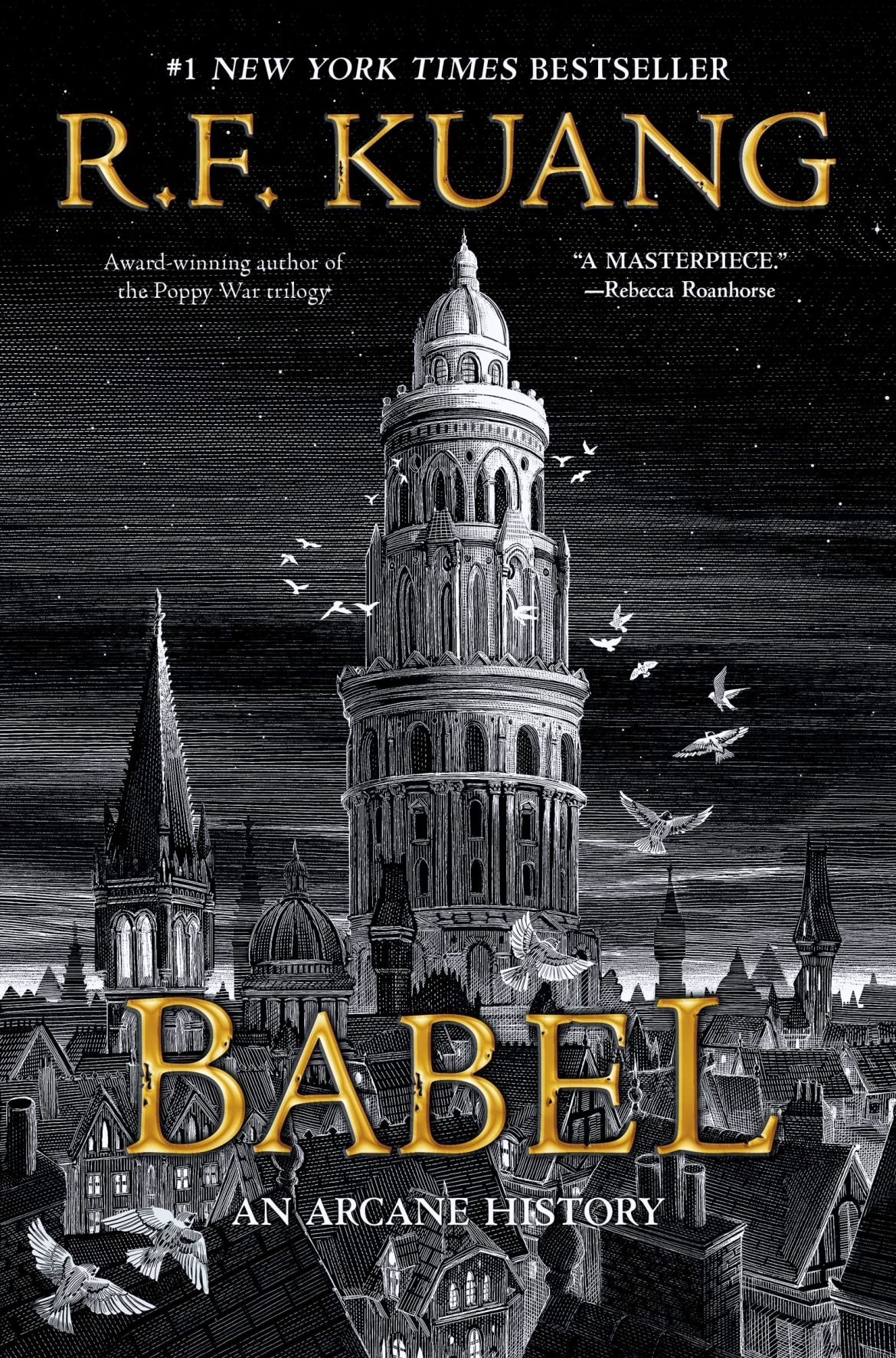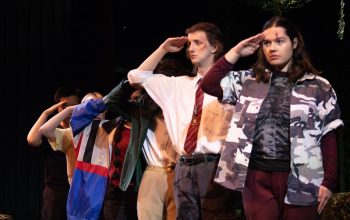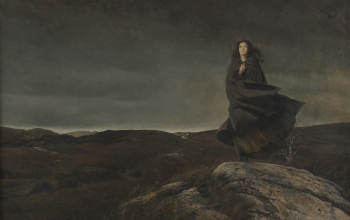Book cover art: @nicodelort
A review of the event and how Babel was informed by Iannucci’s adaptation
Angelina Fernandez, Arts Editor
After reading the Poppy War trilogy and Yellowface earlier this year, R.F. Kuang quickly cemented her status as one of my personal favourite authors. When I discovered that she would be featured in a special event organized by the Toronto International Film Festival (TIFF) on November 18, I practically jumped at the chance to buy tickets. I knew that the upcoming event would be a great opportunity for me to gain insight into the works of one of my most revered authors.
When the day finally arrived, I hopped on the train and listened to an interview that Kuang did with Time magazine in which she discusses how Yellowface’s depiction of the publishing industry shapes her main character June Hayward, and speaks on the broader myth of diversity in publishing. The interview not only provided me with a better understanding of the creative processes behind Yellowface, but it also intensified my growing anticipation to hear Kuang’s discourse on Babel.
Upon arriving at the event, my group waited in line for our pre-signed copies of Babel/Yellowface (I opted to get Babel as it was the only novel of Kuang’s that I had yet to read), and then we went into the TIFF Lightbox, settling into our seats. The event itself began with a quiz, where the winner — who happened to be seated in the row behind me — won copies of the pre-signed novels and merchandise from TIFF. After that, the host brought out Kuang, who introduced the film that would be screened: The Personal History of David Copperfield, an adaptation by Armando Iannucci of Charles Dickens’ novel. As someone who has engaged with Dickens’ work before, especially in my reading of Great Expectations, I mistakenly believed that I had a rough idea of what to expect from the film. Instead, I was pleasantly surprised by how heart-warming and humourous it was, whereby the strong cast, comprised of actors such as Dev Patel, Hugh Laurie, and Tilda Swinton, allowed for the story truly to come to life.
When Kuang returned to the stage, she discussed the impact of the film and novel on her own book, Babel. As a Dickens fan herself, she drew inspiration from the film due to its portrayal of the literary genre of bildungsroman. Kuang explained that her novel depicts a subverted form of the genre as Babel signifies a failed bildungsroman, in which Robin Swift does not undergo the typical transformation as a bildungsroman protagonist, and ultimately, does not reach a goal that forms the conditions for the rest of his life.
She touched on a few additional points, including Iannucci’s utilization of colour-blind casting and its prevalence toward a Victorian era film, her interaction with Dickens’ works as an inherently racist canon, and her own difficulty as a creative in engaging with contemporary works. Perhaps the most poignant answer from Kuang during the Q&A session was her explanation of her treatment of “villainous” characters, in which she expressed her desire to sculpt these characters as multidimensional by portraying them through a sympathetic lens. These sentiments are prevalent within Babel, further demonstrating how Dickens’ work informed Kuang’s.
As someone who has never attended a book signing before, the anticipation of the event was one borne out of excitement and nerves. While I waited in line, I thought about what to say at least a hundred times, and when it finally was my turn, I expressed my admiration for her academic journey and my hope that she would enjoy her time in Toronto, to which she graciously thanked me both times, expressing her own gratitude to me as one of her readers.
Through Kuang’s eloquence during the event, it is clear that her academic background — an MPhil in Chinese Studies from Cambridge, an MSc in Contemporary Chinese Studies from Oxford, and her current pursuit of a PhD in East Asian Languages and Literatures at Yale — greatly informs her work as a creative. Kuang, at only 27 years old, received the Nebula Award earlier this year for Babel, joining the ranks of prominent and renowned authors such as Frank Herbert, Ursula K. Le Gin, and Orson Scott Card. However, she remains humble throughout her journey, demonstrating a poise that I find particularly admirable, especially in a young author. What the TIFF: Loved It series does well is its placement of Kuang in conversation with a direct influence of her work, a Dickensian adaption. It truly allows readers to gain deeper insight into Babel and the influence of academia within Kuang’s publications. Ultimately, events such as this one create a memory that readers will cherish for a long time to come. I know that I certainly will.




